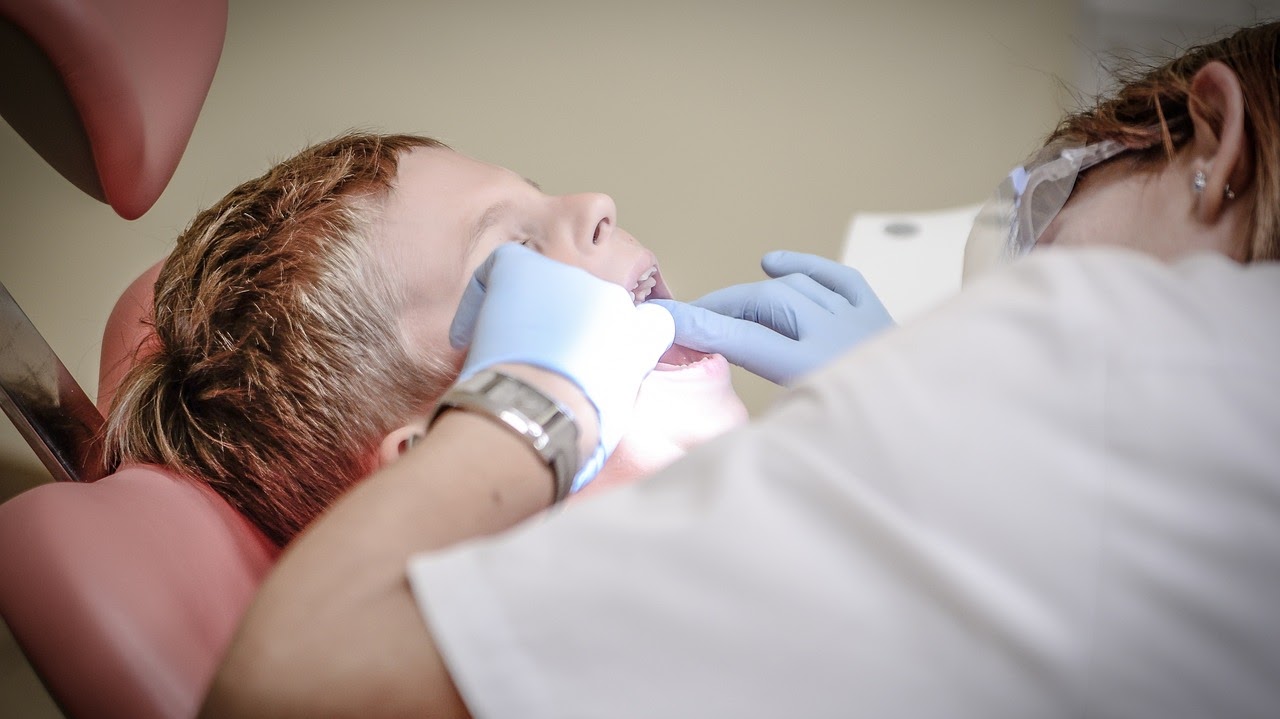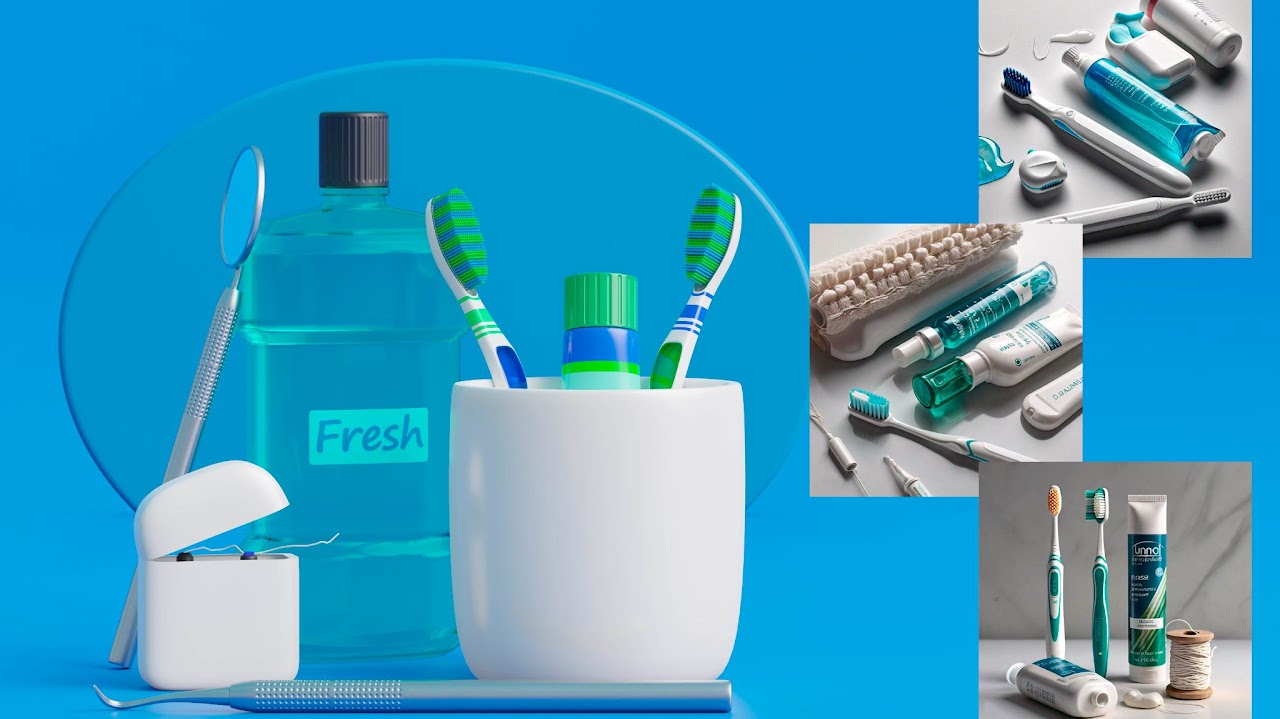A basic brushing routine isn’t always enough to maintain top-notch oral health. To level up your oral hygiene routine, you need the right toothbrush, proper flossing techniques, and an effective mouthwash to keep your teeth and gums in peak condition. Small upgrades in your daily habits can prevent cavities, fight bad breath, and improve overall dental health. In this guide, we’ll explore the best ways to take your oral care routine to the next level!
Make Regular Dental Check-Ups a Priority
The first tip for improving your oral hygiene routine is to replace emergency dental visits with regular check-ups. Regular visits allow for early diagnosis and treatment of potential issues before they worsen. While it’s generally recommended to see your dentist every six months, the frequency can vary based on your oral health and how well you care for your teeth. Some people may need fewer visits, while others, particularly those with certain risk factors or poor oral hygiene, may require more frequent check-ups.
Additionally, Canadian Dental Association (CDA) says it’s important to watch for symptoms such as red, shiny, puffy, sore, or sensitive gums; bleeding when you brush or floss; and persistent bad breath. If you notice any of these signs, seek professional dental attention.
Your Diet Is on the Front Line
You’ve likely heard about the role sugar plays in causing cavities. It’s not far from the truth to say that your parents or primary caregivers were probably the first to warn you about brushing your teeth after having chocolates or cakes, or to advise you against eating too many desserts. Thanks to scientific research, we now understand how sugar contributes to tooth decay. The World Health Organization (WHO) explains that the bacteria in our mouths metabolize the sugars we consume, producing acids. These acids, in turn, demineralize tooth enamel, leading to cavities.
A study suggests that we may underestimate the risk that sugar poses in developing dental caries. In fact, the study highlights that reducing sugar intake is even more important than using fluoride in preventing cavities.
It’s important to note that when we talk about minimizing sugar in our diet, we’re referring to all kinds of sugar, whether it’s natural sugars found in honey and some fruits or added sugars in foods and beverages. Being mindful of your diet is key. The WHO recommends limiting sugar intake to no more than 10% of your total daily energy consumption. However, they also mention that reducing this to 5% is ideal for better oral health.
Additionally, the CDA emphasizes not only reducing sugary choices but also opting for more nutritious options like plain milk and buttermilk, fruits and raw vegetables, plain yogurt, cheese and cottage cheese, hard-boiled or deviled eggs, nuts, seeds, melba toast, and salads. The CDA also advises limiting alcohol consumption and replacing sugary drinks with water as a healthier alternative.
Mouthwash: More Than Just Fresh Breath
Mouthwash is often the first and most immediate solution for bad breath, but it can do much more for your oral health. While cosmetic mouthwashes provide a temporary sense of freshness, the American Dental Association (ADA) recommends therapeutic mouthrinses for their ability to help reduce plaque, gingivitis, bad breath, and tooth decay. Since mouthwash can easily reach areas in your mouth that brushing and flossing might miss, incorporating it into your oral hygiene routine is highly recommended.
If you’re now convinced that mouthwash is a good addition to your routine, just be sure to look for products with the ADA or CDA seal when purchasing. These seals ensure that the product meets the highest standards for effectiveness. If you’re unsure what these seals mean, check out this article on how to choose products that actually deliver on their claims.
Keep an Eye on Your Gums and Tongue
Your gums and tongue are just as important as your teeth when it comes to oral health. Plaque buildup along the gumline can lead to gum disease and eventually tooth loss. Fortunately, many gum diseases are preventable by following a proper oral hygiene routine. Similarly, bacteria can accumulate on your tongue, contributing to dental problems. Therefore, it’s essential to brush your tongue regularly as part of your routine.
Maintaining a healthy mouth involves more than just brushing your teeth—it’s about a well-rounded oral hygiene routine. From mindful dietary choices to using mouthwash and visiting your dentist regularly, every step plays a role in protecting your teeth and gums. By incorporating these tips into your daily routine, you’ll not only boost your oral hygiene but also support your overall health.
References:
http://www.cda-adc.ca/en/oral_health/cfyt/good_for_life/
https://www.medicalnewstoday.com/articles/324708
https://www.dentalhealth.org/oral-health-top-tips
https://www.healthline.com/health/dental-and-oral-health/best-practices-for-healthy-teeth
https://www.who.int/news-room/fact-sheets/detail/sugars-and-dental-caries
https://www.ada.org/resources/ada-library/oral-health-topics/nutrition-and-oral-health
https://www.ada.org/resources/ada-library/oral-health-topics/mouthrinse-mouthwash
https://www.bbc.com/future/article/20140926-how-often-must-we-see-a-dentist
http://www.cda-adc.ca/en/oral_health/faqs/dental_care_faqs.asp
https://www.medicalnewstoday.com/articles/323534#risk-factors-to-avoid
https://www.healthline.com/health/dental-oral-health/brushing-your-tongue




